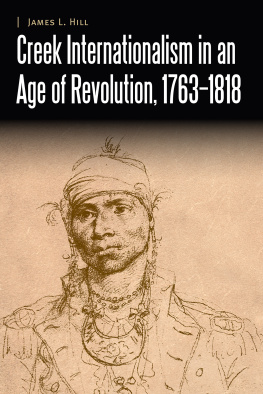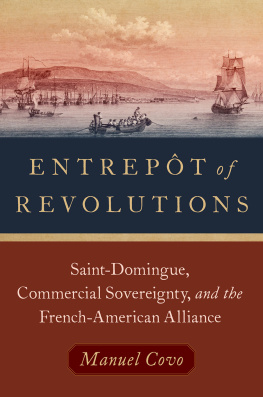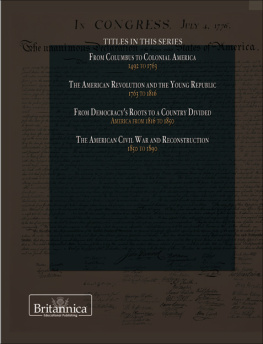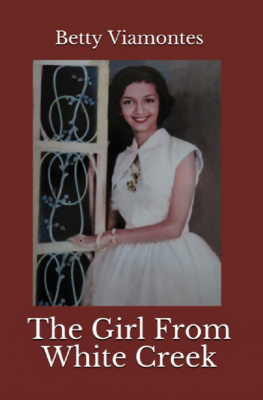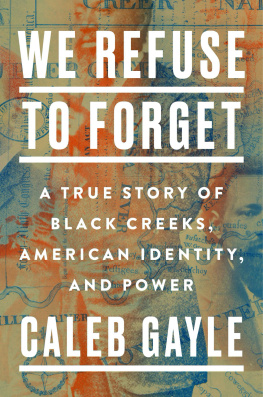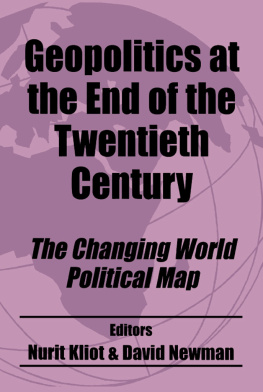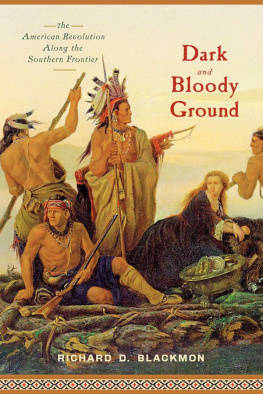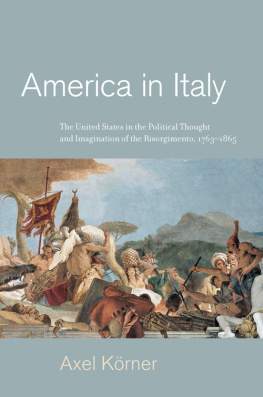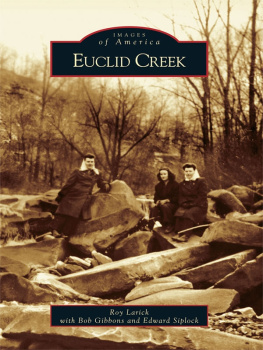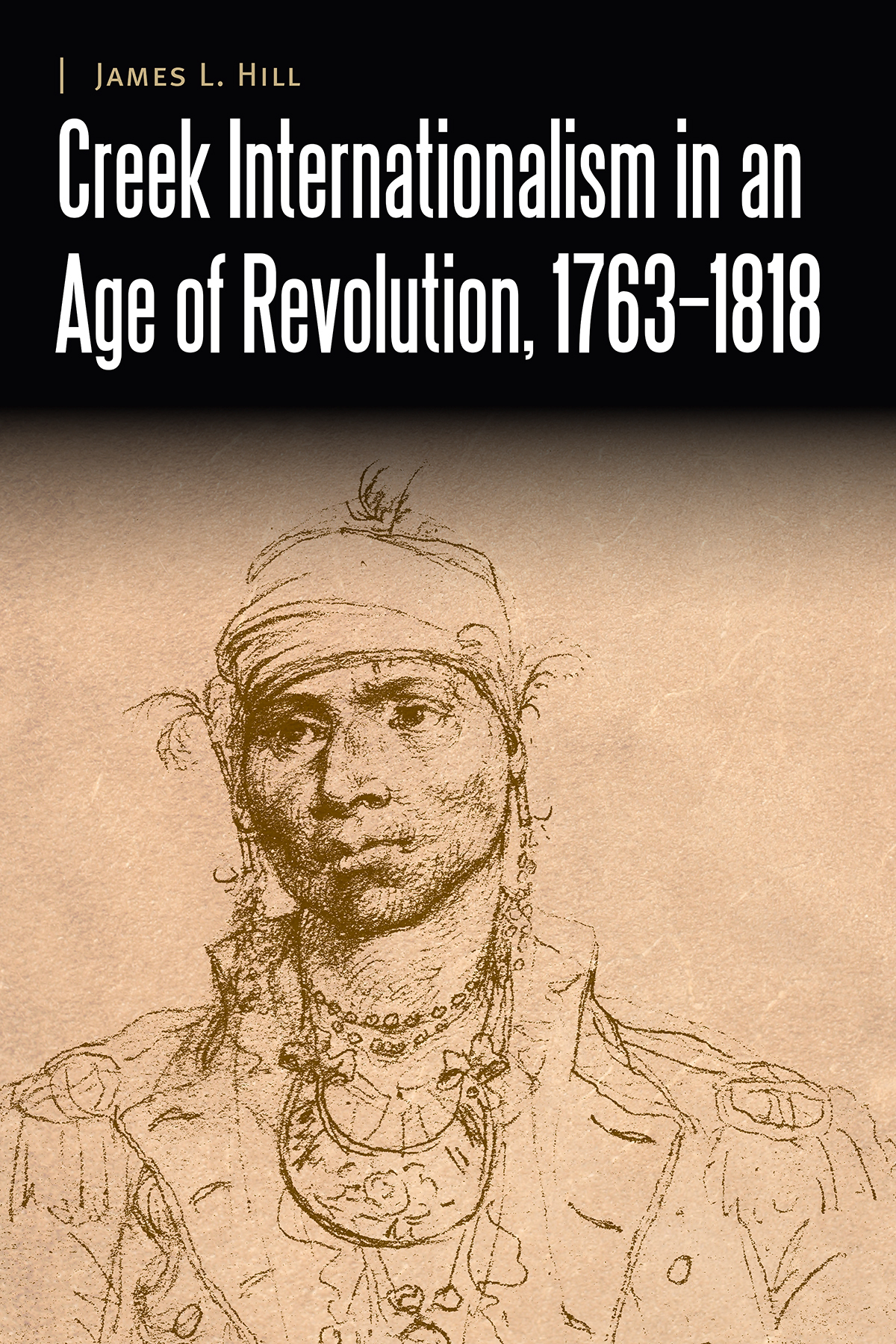
Hills fascinating and insightful Creek Internationalism in an Age of Revolution, 17631818 shows us once again that the Creeks and Seminoles were important (and quite clever) players in the Atlantic world.
Christopher D. Haveman, editor of Bending Their Way Onward: Creek Indian Removal in Documents
A fascinating and important work on the internationalism of the Creek and Seminole/ Miccosukee Indians during the eighteenth and early nineteenth centuries. It is impressive in detail, deeply researched, and recasts our understanding of Indigenous space and diplomacy in important ways.
Andrew K. Frank, author of Creeks and Southerners: Biculturalism on the Early American Frontier

Early American Places is a collaborative project of the University of Georgia Press, New York University Press, Northern Illinois University Press, and the University of Nebraska Press. The series is supported by the Andrew W. Mellon Foundation. For more information, please visit www.earlyamericanplaces.com.
Advisory Board
Vincent Brown, Harvard University
Phanie M. H. Camp, University of Washington
Andrew Cayton, Miami University
Cornelia Hughes Dayton, University of Connecticut
Nicole Eustace, New York University
Amy S. Greenberg, Pennsylvania State University
Ramn A. Gutirrez, University of Chicago
Peter Charles Hoffer, University of Georgia
Karen Ordahl Kupperman, New York University
Joshua Piker, University of Oklahoma
Mark M. Smith, University of South Carolina
Rosemarie Zagarri, George Mason University
Borderlands and Transcultural Studies
Series Editors:
Roslyn LaPier
Rudy Guevarra
Paul Spickard
Creek Internationalism in an Age of Revolution, 17631818
James L. Hill
University of Nebraska Press | Lincoln
2022 by the Board of Regents of the University of Nebraska
Cover designed by University of Nebraska Press; cover image is from the interior.
Portions of the introduction and chapter 1 previously appeared as The Land We Live in Is Our Own: Indigenous Conceptions of Space in Eighteenth-Century Florida, Florida Historical Quarterly 100, no. 1 (Summer 2021): 76105. An earlier version of chapter 1 was published as Bring Them What They Lack: Spanish-Creek Exchange and Alliance Making in a Maritime Borderland, 17631783, Early American Studies 12, no. 1 (2014): 3667.
All rights reserved
The University of Nebraska Press is part of a land-grant institution with campuses and programs on the past, present, and future homelands of the Pawnee, Ponca, Otoe-Missouria, Omaha, Dakota, Lakota, Kaw, Cheyenne, and Arapaho Peoples, as well as those of the relocated Ho-Chunk, Sac and Fox, and Iowa Peoples.
Library of Congress Cataloging-in-Publication Data
Names: Hill, James L., 1986 author.
Title: Creek internationalism in an age of revolution, 17631818 / James L. Hill.
Description: Lincoln : University of Nebraska Press, 2022. | Series: Borderlands and transcultural studies | Includes bibliographical references and index.
Identifiers: LCCN 2021046887
ISBN 9781496215185 (hardback)
ISBN 9781496231833 (epub)
ISBN 9781496231840 (pdf)
Subjects: LCSH : Creek IndiansPolitics and government18th century. | Creek IndiansGovernment relations. | Creek IndiansPolitics and government19th century. | Indians of North AmericaHistoryRevolution, 17751783 | BISAC : SOCIAL SCIENCE / Ethnic Studies / American / Native American Studies | HISTORY / United States / 19th Century
Classification: LCC E 99. C 9 H 54 2022 | DDC 975.004/97385dc23/eng/20211012
LC record available at https://lccn.loc.gov/2021046887
The publisher does not have any control over and does not assume any responsibility for author or third-party websites or their content.
Contents
Maps
Figures
Tables
First, I thank my PhD advisor, Brett Rushforth, for his advice and guidance. In particular, his prompting me to better articulate and refine my argument and his attention to historiography reminded me that my narratives should always connect to broader points. Denise Bossy is the one scholar who has followed this work from beginning to end. She helped guide me through the seminar paper that evolved into chapter 1 and agreed to be a reader for the final draft. I am grateful to Dan Richter for reading a (nearly) full draft of the project and offering immensely helpful advice. J. Michael Francis introduced me to archival research and enabled my first foray into the Archivo General de las Indias. His efforts made all my subsequent work possible. Fabricio Prado and Andy Fisher served on my dissertation committee and provided helpful support along the way. Special thanks go to Michelle and Roderick McDonald for their guidance as I began my post-PhD career and set out for my first academic job in Nassau.
I am indebted to many other scholars and institutions for this work. Insightful comments and feedback from Andrew Frank and an anonymous reviewer from the University of Nebraska Press were instrumental in transforming my dissertation into a published book. Joshua Piker read drafts of this work, chaired a conference panel I assembled, and offered advice and encouragement. Robbie Ethridge, Rayna Green, Steven C. Hahn, George Milne, Paul Gilje, John Worth, Bryan Rindfleisch, Jim Cusick, Andrew Lewis, Patrick Johnson, Christopher Jones, and many others provided useful feedback and assistance.
My colleagues at the University of the Bahamas, Mississippi State University, and the University of Pittsburgh were sources of scholarly support, mentorship, and camaraderie. At the University of the Bahamas, Christopher Curry, Anne Ulentin, Richard Adderly, Philip Smith, Stephanie Tanzil-Smith, Samantha Pratt, Annette Rolle, and Patricia Ellis, among countless others, helped me adapt to my new surroundings and made my time in Nassau enjoyable. At Mississippi State, Andrew Langs commiseration made coping with various difficulties possible. He has continued to be a constant source of levity and friendship. Julia Osman, Courtney Thompson, Rachel Arney, Taylor Shelton, Laura Allen, Russell Brandon, Andrew Jarosz, and Andrew Stevens were fantastic colleagues and true friends during my time in Starkville.
My colleagues at Pitt have all been wonderful and welcoming. Remote social gatherings with Niklas Frykman, Marcus Rediker, Pernille Rge, Rob Ruck, and Molly Warsh alleviated the isolation of the pandemic. Liann Tsoukas and Tony Novosel were mentors in every sense of the word. I will forever be grateful to Lara Putnam for the assistance she provided during my transition to life in Pittsburgh. I also appreciate all those who attended my seminar at the McNeil Center for Early American Studies and my presentations of conference papers at the annual meetings of the American Society for Ethnohistory, Native American and Indigenous Studies Association, and Florida Historical Society.
Staff and peers at numerous archives, libraries, and institutions helped contribute to this work. Individuals at the Archivo General de las Indias, the UK National Archives, the Library of Congress, and the U.S. National Archives guided me through the archival sources that form the backbone of this work. I am indebted to Jim Cusick for his knowledge of records and archival evidence pertaining to Florida history. Additionally, thanks are due to the staff at the Huntington Library, the John Carter Brown Library, the New Orleans Historic Collection, the Library and Archives of Canada, the Bahamian National Archives, the David Library of the American Revolution, the Alabama Department of Archives and History, the Georgia Department of Archives and History, the North Carolina State Archives, and the Tennessee State Archives. I am especially grateful to Meg McSweeney and Brian Graziano for their hospitality during my time at the David Library.
Next page
